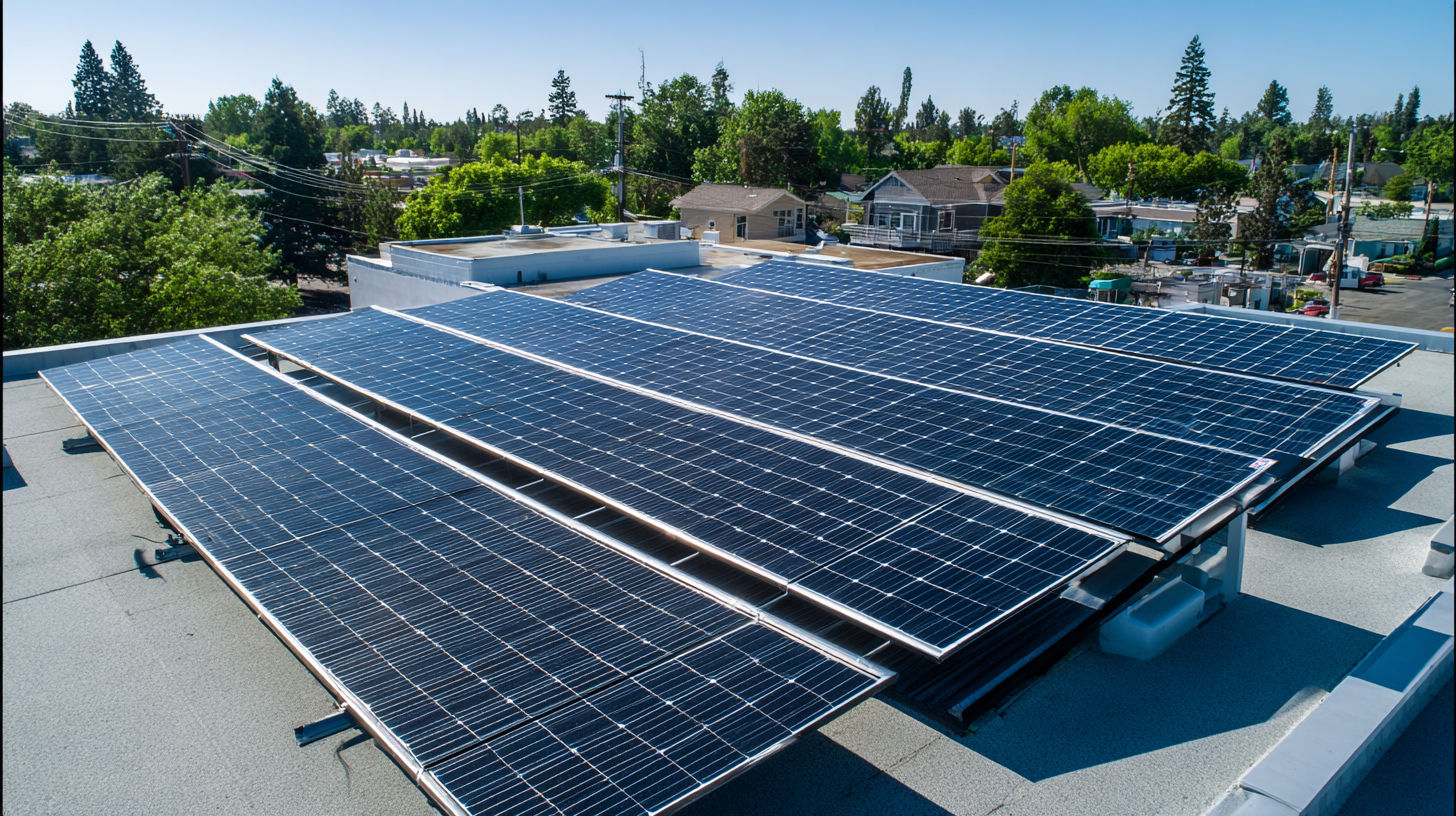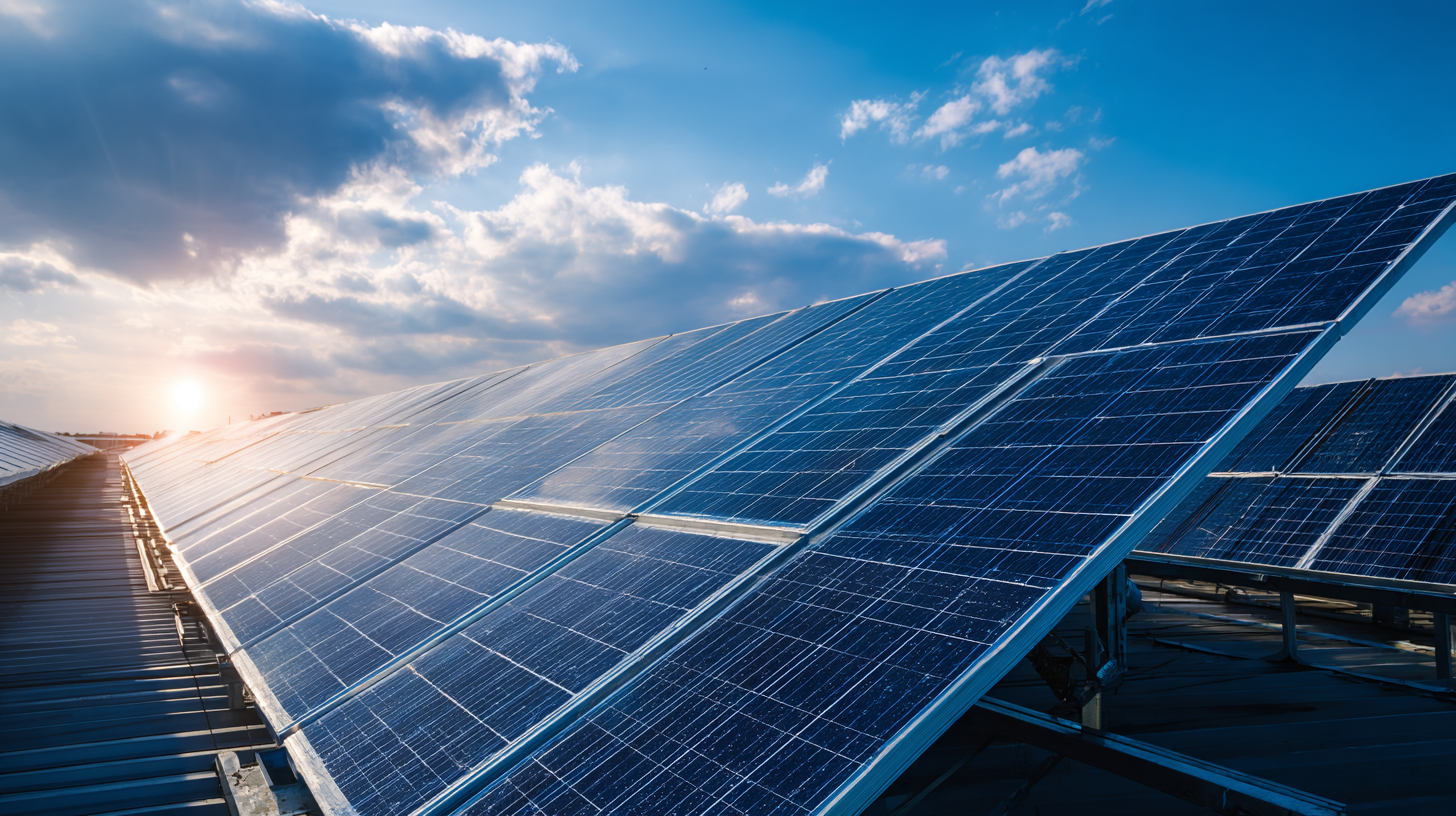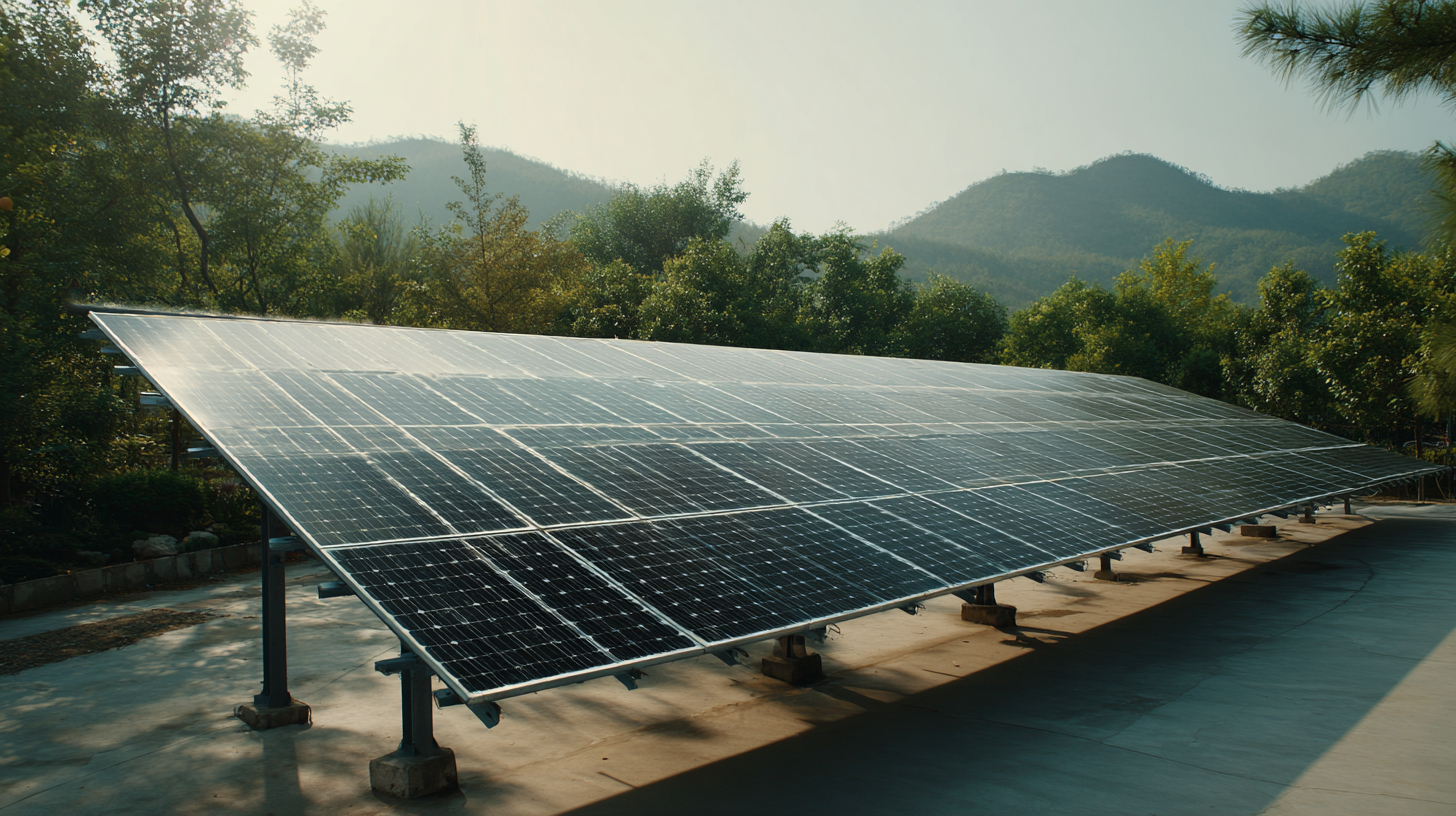Blog
- Home
- Blog
How to Choose the Best Renewable Solar Solutions for Maximum Energy Savings
In an era where sustainability is no longer a choice but a necessity, choosing the best renewable solar solutions for your energy needs has become paramount. With an array of options available, from solar panels to innovative solar technologies, navigating the selection process can be overwhelming.
 However, understanding how to effectively harness renewable solar energy can lead not only to significant cost savings but also to a reduced carbon footprint. This guide aims to simplify your decision-making process by providing essential insights and practical considerations to help you identify the most efficient renewable solar solutions tailored to your unique requirements.
Whether you are a homeowner seeking to lower utility bills or a business aiming to enhance eco-friendliness, making informed choices about renewable solar can unlock a future of sustainable energy savings.
However, understanding how to effectively harness renewable solar energy can lead not only to significant cost savings but also to a reduced carbon footprint. This guide aims to simplify your decision-making process by providing essential insights and practical considerations to help you identify the most efficient renewable solar solutions tailored to your unique requirements.
Whether you are a homeowner seeking to lower utility bills or a business aiming to enhance eco-friendliness, making informed choices about renewable solar can unlock a future of sustainable energy savings.
Understanding the Different Types of Solar Solutions Available Today
When choosing the best renewable solar solutions for maximum energy savings, it's essential to understand the different types of solar technologies available today. The most common options include traditional silicon-based solar panels, thin-film technologies, and the innovative perovskite solar cells that are being researched as a sustainable alternative. Perovskite photovoltaics have shown remarkable efficiency potential, consistently outperforming standard silicon panels in laboratory settings.
**Tip:** Consider high-efficiency solar panels, as selecting the right system can lead to substantial savings—up to $3,600—over the panels' lifespan. Efficiency is influenced by factors like temperature stability and light absorption, so thorough research is vital before making a purchase.
Additionally, integrating energy storage systems can maximize the utility of solar solutions. These systems ensure that excess energy generated during sunny periods can be stored for later use, providing a consistent energy supply even when sunlight is unavailable. Current advancements in energy storage technologies offer a variety of options, such as lithium-ion batteries and emerging innovations, thereby enhancing the overall performance and reliability of solar installations.
**Tip:** Evaluate the energy storage options available in your area, as the right combination of solar generation and storage can lead to greater energy independence and reduced utility costs.
Evaluating Your Home's Energy Needs for Solar Efficiency
When considering the best renewable solar solutions for your home, evaluating your energy needs is fundamental. According to the U.S. Department of Energy, residential buildings consume roughly 22% of the total energy in the country, and in many cases, a significant portion of that is attributed to heating and cooling. Understanding your energy consumption patterns can help you determine the size and type of solar system that will provide optimal efficiency and savings.
Tip 1: Conduct an Energy Audit. Before installing solar panels, it's crucial to analyze your home's energy usage. Use tools or hire professionals to perform an energy audit, which will identify your high-consumption appliances and where you can improve efficiency. This data enables you to choose a solar solution that meets your specific needs without oversizing the system, which can lead to unnecessary costs.

Tip 2: Assess Your Roof's Potential. Not all roofs are created equal when it comes to solar energy. The Solar Energy Industries Association (SEIA) suggests evaluating factors like sunlight exposure, shading from trees or nearby buildings, and roof age or condition. This assessment can help you maximize the solar panel output and ensure that your investment pays off over time through significant energy savings.
Key Factors to Consider When Selecting Solar Panels
When selecting the best solar panels for your energy needs, several key factors should be taken into consideration to maximize energy savings. Firstly, the type of solar technology plays a crucial role. There are various options available, including monocrystalline, polycrystalline, thin-film, and perovskite solar cells. Each type has its advantages and disadvantages in terms of efficiency, cost, and space utilization. Monocrystalline panels are known for their high efficiency and performance in low-light conditions, making them ideal for areas with limited space.
Another important consideration is the inverter type, particularly the choice between microinverters and string inverters. Microinverters offer advantages such as improved energy harvest and the ability to monitor each panel's performance individually. This can be particularly beneficial in installations where shading might be an issue. Furthermore, it’s essential to evaluate the warranty and lifespan of the solar panels. A good warranty often indicates the manufacturer’s confidence in their product and can provide peace of mind in terms of future maintenance and performance. By carefully weighing these factors, you can select solar panels that not only align with your energy needs but also contribute to significant long-term savings.

Exploring Solar Battery Options for Energy Storage and Savings
As solar energy continues to gain traction, exploring efficient solar battery options becomes crucial for maximizing energy savings. Recent studies have emphasized the importance of Energy Storage Systems (ESS) in optimizing renewable energy consumption. For instance, an optimization framework has been developed to determine the appropriate ESS capacity by integrating Demand Side Management (DSM) strategies, which can enhance energy reliability and efficiency in residential settings. This approach not only alleviates peak demand but also contributes to substantial cost savings for homeowners.
Future-forward alternatives like seasonal thermal energy storage (STES) demonstrate the potential for capturing and storing solar heat for decarbonizing heating systems. Research indicates that such technologies could significantly reduce energy costs—one report estimated savings of up to $2,300 annually for homes fully equipped with solar panels and electric vehicles. By combining effective energy storage solutions with solar technology, users can harness the full potential of renewable energy, ensuring not only reliability but also affordability in their energy supply.
How to Choose the Best Renewable Solar Solutions for Maximum Energy Savings - Exploring Solar Battery Options for Energy Storage and Savings
| Solar Battery Type | Capacity (kWh) | Round Trip Efficiency (%) | Estimated Lifespan (Years) | Average Cost ($) | Best Application |
|---|---|---|---|---|---|
| Lithium-ion | 10 | 90 | 10 | 7000 | Home Energy Storage |
| Lead Acid | 12 | 75 | 5 | 300 | Backup Power |
| Nickel Cadmium | 15 | 80 | 15 | 1200 | Industrial Applications |
| Flow Batteries | 20 | 70 | 20 | 15000 | Grid Energy Storage |
Navigating Government Incentives and Rebates for Solar Installation
When considering solar installation, understanding government incentives and rebates is crucial for maximizing your energy savings. Many governments offer financial support to encourage the transition to renewable energy sources. In countries like Thailand and Malaysia, the emphasis on green technology has led to various programs designed to reduce installation costs. Exploring these incentives not only makes solar solutions more affordable but also enhances your return on investment.
**Tip 1**: Research local and national tax credits specifically aimed at solar energy investments. These can significantly lower your upfront costs and improve long-term savings.
Navigating the rebate landscape can be complex, but it is essential for making informed decisions about solar solutions. Be on the lookout for utility rebates that may provide additional savings after your solar system is installed. This can vary widely depending on your location and energy provider.
**Tip 2**: Consult with a solar installation expert who can guide you through the process of applying for incentives and rebates. They can tailor recommendations based on your specific circumstances and ensure you capture all available benefits.